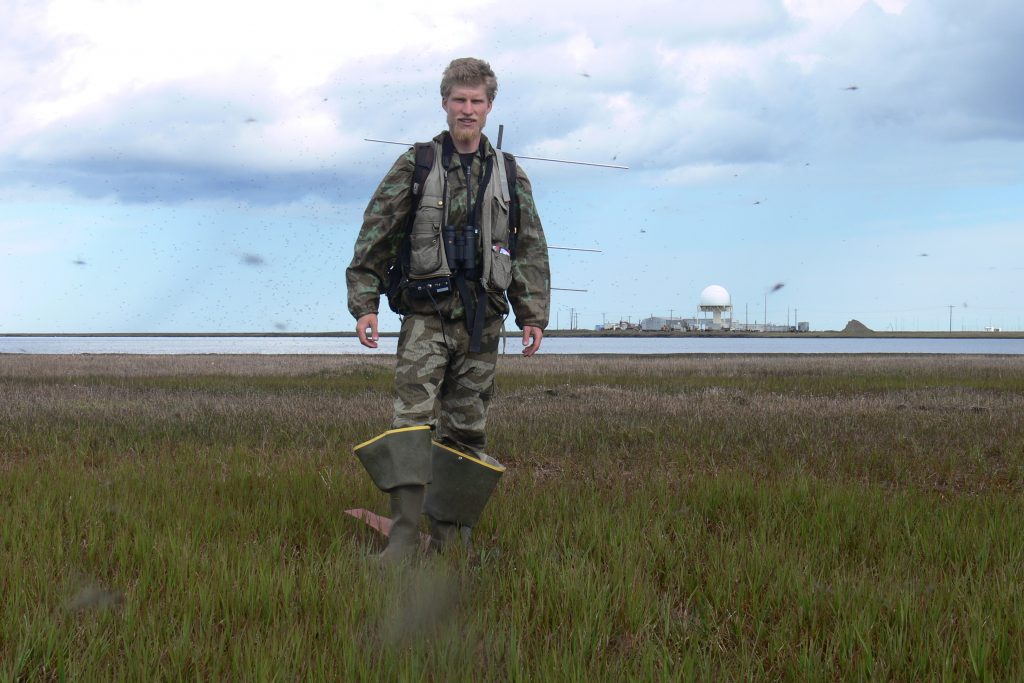Vojtěch Jarošík Award for 2018
The winners of the Vojtěch Jarošík Award for outstanding student publication in the field of ecology, which is awarded by the Department of Ecology, Faculty of Science, Charles University and the Czech Society for Ecology, are announced for the fifth time this year – and for the second time in the short history of the award it will be shared by two persons.

In the last year, in total 13 first-year student papers were submitted to the competition, which were published in international peer-reviewed journals in 2018. The submitted papers were judged by twelve evaluators composed of representatives of the Czech Society for Ecology and the Department of Ecology, Charles University. Each member of the committee shortlisted three papers on the basis of their originality and contribution to ecological knowledge.
At the end, the results of the evaluation were quite clear – with the same number of votes, two publications took the winning position: the widely publicized paper “Global pattern of nest predation is disrupted by climate change in shorebirds” of Vojtěch Kubelka, a recent graduate from the Department of Ecology, Charles University, published in Science, and the paper of Lucie Vančurová, PhD student at the Department of Botany, Charles University, entitled “The complexity of symbiotic interactions influences the ecological amplitude of the host: a case study in Stereocaulon (lichenized Ascomycota)” published in Molecular Ecology. Another algological publication from the Faculty of Science of Charles University by Helena Bestová took the third place.
Considering the number of applicants, the students’ interest in the Vojtěch Jarošík Award seems to be stable – the number of entries has fluctuated from nine to thirteen throughout the existence of the award. However, the representation of universities was very uneven in the last year. Applicants from the Faculty of Science of Charles University (from the departments of Botany, Ecology, Zoology and the Institute for Environmental Studies) completely dominated, two more submitted papers were from students of the Faculty of Science of the University of South Bohemia in České Budějovice. This time, no paper came from Moravian universities, although there have been undoubtedly also some interesting student publications in ecology. The question is what lies behind this little interest. Is it because, despite the attempts to promote the award at all relevant academic institutions in Czechia, students do not know about the award? Or do they not believe that their publication has a chance to be awarded? Or are they unwilling to spend a couple of minutes to prepare the application documents?
It is up to all of us to motivate successful students to submit their high-quality publications to the competition. This year’s round demonstrated that even when competing with such an extraordinary publishing success as the first-author student paper in Science, other submitted works may still stand a chance.
Top-rated papers submitted for the Vojtěch Jarošík Award for 2018
1.-2. Kubelka V., Šálek M., Tomkovich P., Végvári Z., Freckleton R.P. & Székely T. (2018): Global pattern of nest predation is disrupted by climate change in shorebirds. Science 362(6415): 680-683.
1.-2. Vančurová L., Muggia L., Peksa O., Řídká T. & Škaloud P. (2018): The complexity of symbiotic interactions influences the ecological amplitude of the host: a case study in Stereocaulon (lichenized Ascomycota). Molecular Ecology 27: 3016–3033.
3. Bestová H., Munoz F., Svoboda P., Škaloud P. & Violle C. (2018): Ecological and biogeographical drivers of freshwater green algae biodiversity: from local communities to large – scale species pools of desmids. Oecologia 186: 1017–1030.
Other submitted papers (in alphabetical order)
Duchoslavová J. & Jansa J. (2018): The direction of carbon and nitrogen fluxes between ramets in Agrostis stolonifera changes during ontogeny under simulated competition for light. Journal of Experimental Botany 69(8): 2149–2158.
Florianová A. & Münzbergová Z. (2018): Drivers of natural spread of invasive Impatiens parviflora differ between life-cycle stages. Biological Invasions 20: 2121–2140.
Kuťáková E., Cesarz S., Münzbergová Z. & Eisenhauer N. (2018): Soil microarthropods alter the outcome of plant-soil feedback experiments. Scientific Reports 8: 11898.
Kuťáková E., Herben T. & Münzbergová Z. (2018): Heterospecific plant–soil feedback and its relationship to plant traits, species relatedness, and co-occurrence in natural communities. Oecologia 187: 679–688.
Macková L., Vít T. & Urfus T. (2018): Crop-to-wild hybridization in cherries—Empirical evidence from Prunus fruticosa. Evolutionary Applications 11: 1748–1759.
Mikula P., Díaz M., Albrecht T., Jokimäki J., Kaisanlahti-Jokimäki M.-L., Kroitero G., Møller A.P., Tryjanowski P., Yosef R. & Hromada M. (2018). Adjusting risk taking to the annual cycle of long-distance migratory animals. Scientific Reports 8: 13989.
Mrazova A. & Sam K. (2018): Application of methyl jasmonate to grey willow (Salix cinerea) attracts insectivorous birds in nature. Arthropod-Plant Interactions 12: 1-8.
Souto-Vilarós D., Proffit M., Buatois B., Rindos M., Sisol M., Kuyaiva T., Michalek J., Darwell C.T., Hossaert-McKey M., Weiblen G., Novotny V., Segar S.T. (2018) Pollination along an elevational gradient mediated by both floral scent and pollinator compatibility in the fig and fig-wasp mutualism. Journal of Ecology 106: 2256-2273.
Timsina B., Kindlmann P., Rokaya M.B., Vrchotová N., Tříska J., Horník Š. & Sýkora J. (2018): Xanthones content in Swertia multicaulis D. Don from Nepal. Molecules 23: 1067.
Veselá H., Mudrák O. & Frouz J. (2018): The role of dead standing biomass of Calamagrostis epigejos in nutrient turnover during spontaneous succession. Science of The Total Environment 644: 717-724.